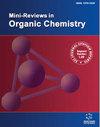Porous Aromatic Framework-based Materials: superior Adsorbents for Uranium Extraction from Aqueous Solutions
IF 1.9
4区 化学
Q2 CHEMISTRY, ORGANIC
引用次数: 0
Abstract
Uranium, the primary fuel source for nuclear power reactors, is one of the most crucial components in new energy production. Currently, uranium is mainly mined from land ore, which will be exhausted within 200 years. As the world's largest uranium reservoir, the ocean is an ideal source for people to obtain these industrial resources. However, the low concentration of uranium (typically about 3.3ug/L) in seawater poses a great challenge for the project uranium extraction from seawater. The porous aromatic framework (PAF)is a new type of porous nano-solid material with chemical stability, robust framework, and inherent porosity, making itself being the promising material for uranium capturing from aqueous solutions. The progress and advancements of PAFs and PAF-based materials as adsorbents for uranium extraction from aqueous solutions are detailed in this review. Then, several common utilized ways to enhance PAF-based materials’ adsorption performance are discussed. Finally, the authors make a summary and perspective on the opportunities and challenges of this kind of nanomaterials to provide some relevant information on designing PAFs and PAF-based materials for Uranium Extraction from seawater.多孔芳香骨架材料:从水溶液中提取铀的优良吸附剂
铀是核反应堆的主要燃料来源,是新能源生产中最关键的组成部分之一。目前,铀主要从陆地矿石中开采,这些矿石将在200年内耗尽。作为世界上最大的铀库,海洋是人们获得这些工业资源的理想来源。然而,海水中铀的低浓度(通常约为3.3微克/升)对从海水中提取铀的项目构成了巨大挑战。多孔芳香骨架(PAF)是一种新型的多孔纳米固体材料,具有化学稳定性、坚固的骨架和固有的孔隙率,是从水溶液中捕获铀的有前途的材料。综述了PAFs和PAF基材料作为吸附剂从水溶液中提取铀的研究进展。然后,讨论了几种常用的提高PAF基材料吸附性能的方法。最后,作者对这类纳米材料的机遇和挑战进行了总结和展望,为设计PAFs和PAF基海水提铀材料提供了一些相关信息。
本文章由计算机程序翻译,如有差异,请以英文原文为准。
求助全文
约1分钟内获得全文
求助全文
来源期刊
CiteScore
4.50
自引率
4.30%
发文量
116
审稿时长
>12 weeks
期刊介绍:
Mini-Reviews in Organic Chemistry is a peer reviewed journal which publishes original reviews on all areas of organic chemistry including organic synthesis, bioorganic and medicinal chemistry, natural product chemistry, molecular recognition, and physical organic chemistry. The emphasis will be on publishing quality papers very rapidly, without any charges.
The journal encourages submission of reviews on emerging fields of organic chemistry including:
Bioorganic Chemistry
Carbohydrate Chemistry
Chemical Biology
Chemical Process Research
Computational Organic Chemistry
Development of Synthetic Methodologies
Functional Organic Materials
Heterocyclic Chemistry
Macromolecular Chemistry
Natural Products Isolation And Synthesis
New Synthetic Methodology
Organic Reactions
Organocatalysis
Organometallic Chemistry
Theoretical Organic Chemistry
Polymer Chemistry
Stereochemistry
Structural Investigations
Supramolecular Chemistry

 求助内容:
求助内容: 应助结果提醒方式:
应助结果提醒方式:


